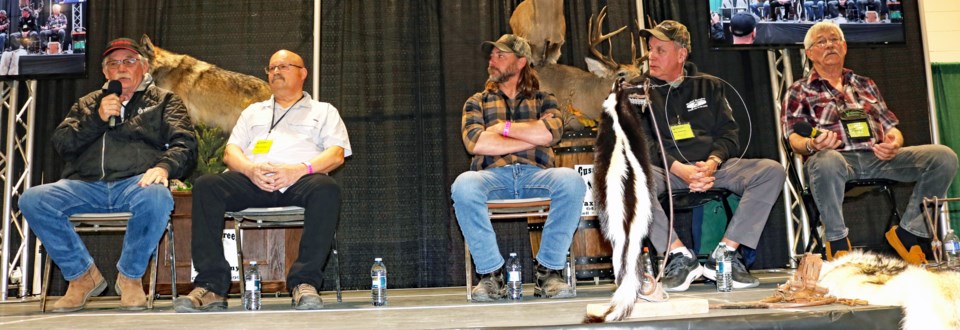YORKTON - For those who trap it is an activity not exactly a hobby, nor a business, but it is certainly a passion.
“It’s actually a lifestyle and a real passion,” offered Jim Kamann, from Roblin, Man. during a panel discussion at the Parkland Outdoor Show & Expo in Yorkton, Sunday.
“I do it because I like doing it. It’s kind of a hobby,” offered Floyd Hendrickson of Margo, SK. “But, you can make some money. If I can break even I’m happy. If I make a little, I’m really happy.”
For the panellists it is also something they have done for years.
“It’s something I grew up doing said Steve Yanish of Yorkton, who added as a youngster it was something he did with his grandfather, and it was also a way “to make a little money.”
Today, “it’s something I do just because I love the outdoors. It’s like Christmas morning going out to check the trap line . . . It’s more a passion project just being out there.”
It was as a youth Gord Hannibal started too.
“Dad gave me two little weasel traps. I remember the first weasel I caught,” he said.
By Grade 6 Hannibal had a long list of firsts, including a lynx.
“I was a pretty proud little boy,” he said of the lynx.
So how does one start in trapping.
In Manitoba you start with a two-day course, but it was suggested you learn more before creating a trap line.
“That’s (the course) the bare minimum,” said Kamann, suggesting a beginner find a veteran mentor. “Spend some time with a seasoned trapper.”
Part of the education is gaining knowledge about the animals being trapped.
“Know the prey you’re after,” said Yanish. “Know their habits, their habitat, their preferred food.
“There’s no substitute for experience.”
It’s also important to respect the animals and landowners.
“It’s all about respect,” said Kamann. “You need to be squeaky clean about what you’re doing. Us, as professionals need to be very professional.” He added later on social media, “. . . our industry is under a lot of scrutiny.”
In that regard professionalism must extend to the animals.
“Most trappers don’t want to see an animal suffer,” said Hannibal, adding the more humane equipment is, the better it is.






